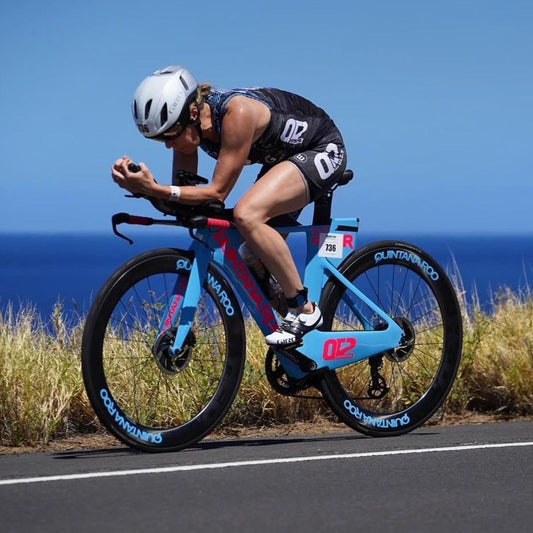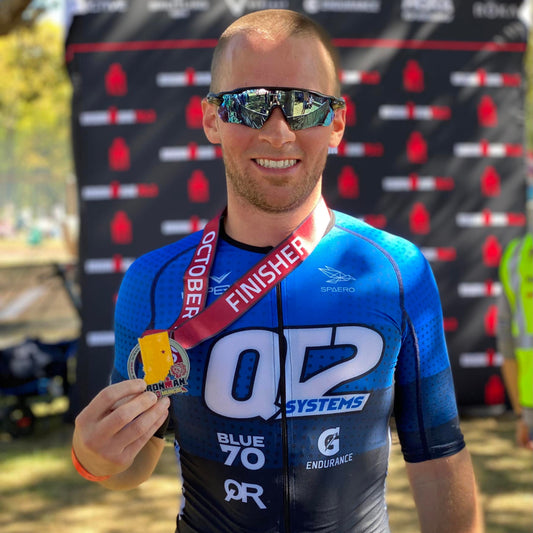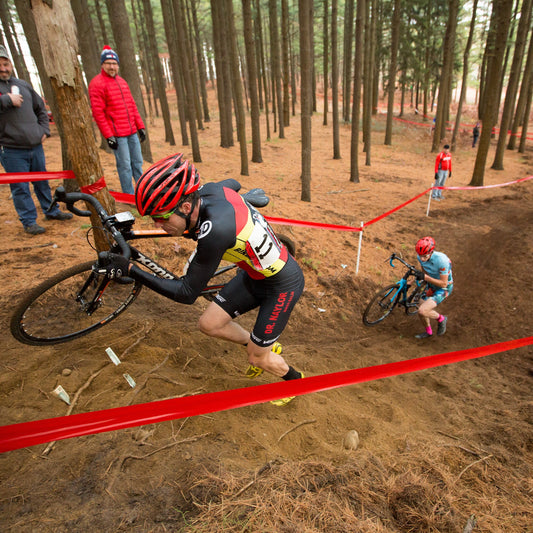Ironman training and racing can bring with it, a dark side, and bright side. Both a beginner, and seasoned veteran, should be aware of both. The demands of Ironman changes lives, but it is the responsibly of coach and athlete, to ensure the change is going to make the life during and after Ironman healthy. The health of the athlete should be physical, but also mentally and socially. There will be a time, when swim/bike/run will not be part of the prescription for the day. Hopefully, this isn’t during a training block, but it ultimately will be a prescription someday once the athlete moves on from the Ironman lifestyle. As I navigated through my own racing career, and continue to navigate life without Ironman training in it, the bright and dark lessons learned along the way have become clear. I move athletes through training to gain faster splits, but also pay close attention to the impact this training has on the circle of life that surrounds them.
I call them approval points. The bank account of approval points I have for athletes are high, and their own approval points are the same. It is the reason we are working together. We both approve of the amount of effort we put in and as a result we move forward towards an outcome. The measure of how healthy that process and outcome will have on the athlete, won’t be measured long term by the output of watts, pace, or swim splits, or even placement in an age group. Instead, the health of that whole process will be measured by impact it will have on the lives of those not in the training log.
A large burden of time, energy and stress is required to meet the demands of preparing for an Ironman. This unique demand can strain relationships in an unhealthy way. Daily schedules are altered, diet, sleep patterns, moods are all different from the norm. We become this unique, solo entity navigating through a world that isn’t quite comprehending the whole process of what goes into the preparation to grab at a dream. This world that surrounds us, as we endure this process must have our full attention in order to support the health of the life after Ironman. The athlete will come out of the Ironman experience healthier physically, mentally, and emotionally. However, the true measure of the success of the training, as well as racing, will be if those around us are better as well.
A coach, and athlete, must pay attention to the lives impacted by the seasonal plan. There are always key workouts, and weeks that are critical to the preparation for race day. It is the time around those important moments that can allow us to embrace those outside of our solo training to feel like they are part of the process and also reaping the rewards this sport brings.
As athletes, we are either training to get somewhere, or training to get away from something. A coach needs to recognize the difference between the two. An athlete that is using training to get away from something, is on the path to the dark side of the sport. They are using training, as a filler, or excuse to not have to deal with underlying issues at home, work, or inside themselves. Training becomes a way, to not have the time, or energy to deal with becoming a healthier human. What we do is amazing, and can be a positive vehicle to inspire and help others to learn how to live out dreams and become more active and happier. This responsibility should not be held for only you, and those that follow you on social media, but instead should be shared with those in your daily life. We tend to measure success by data, instead I challenge my athletes to measure success in the happiness they have, and the happiness of those around them. DO a recovery run with someone close to you. GO on that vacation. RIDE around the block with your kids. HAVE the whole family do that 5k you have on your schedule, and DON’T do it at race effort. Run with your KID, and be sure they beat you!!!! DO a hike with others, instead of a long bike ride. VOLUNTEER for a charity ride, or an aid station at a race. My fondest memory from triathlon, is not crossing the finish line first, but instead working the 8-12pm aid station at mile 24 of Ironman Lake Placid. The coach, will take care of the stress missed, it can be made up. That moment of being with others humans, can’t be made up. Those are the things that will make you faster in that last mile of the Ironman run, not the fact you didn’t do a 5k 4 months ago at race effort.
Once you start looking away from the watch, you start to see the amazing gift that Ironman is about. It will bring you to beautiful places, and you will meet amazing people. You can only access the bright side of this sport, by ensuring you hit the key moments in training, but also you are there for the key moments in the lives of others. That is when you start going somewhere in your training, instead of getting away from something. It is the time off the bike, not in running shoes, and away from the pool that will stoke the fire to push you beyond what you thought you could do. Make these moments a priority in your seasonal plan, you will never regret it.
This post was written by QT2 Level 3 Coach, Vinny Johnson.





